Today, there are many crypto derivative exchanges and this article will take a closer look at the best ones. The crypto industry has come a long way in the past couple of years. Back in early 2017 very few people were exposed to cryptocurrencies, but the massive rally at the end of that year changed everything.
Crypto went mainstream and with it came a wide range of investment vehicles including derivatives. During the height of that boom, two of the world’s largest financial exchanges launched Bitcoin futures products which paved the way for many more to follow.
According to Nasdaq, 2019 saw a number of new cryptocurrency derivatives exchanges looking to gain a share of the market. Citing a TokenInsight report, it added that 2020 is expected to be even bigger for cryptocurrency derivatives, with the market predicted to outstrip the spot trading scene by as much as 100 percent.
In this guide:
- What Are Crypto Derivatives Exchanges?
- Crypto Futures
- Crypto Options
- Perpetual Swaps
- CFDs
- Taker and Maker Fees
- Margin Trading
- Best Crypto Derivatives Exchanges
- Frequently Asked Questions
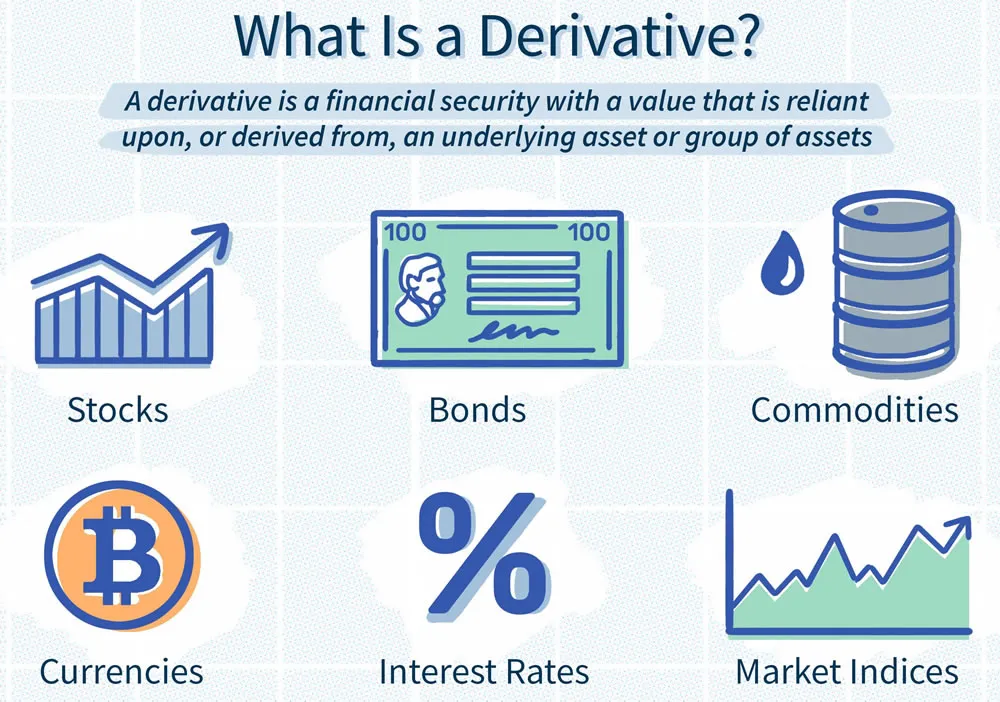 Image from Investopedia.com
Image from Investopedia.com
What Are Crypto Derivatives Exchanges?
A derivative is essentially a contract that derives its value from the performance of one or more underlying assets. In this case the assets are Bitcoin and cryptocurrencies. A crypto derivatives exchange, is an exchange that offers crypto derivatives. Derivatives offer investors a capital-efficient way of gaining exposure to cryptocurrencies without the technicalities of trading them directly.
Derivatives contracts can be broken down into three major categories though there are many different options with them.
/Related
MORE ARTICLESTop 10 Telegram Channels for Crypto Signals in 2022
9 Best Crypto Exchanges for Beginners
Copy Trading: A Definitive Guide for Beginners (2022)
What Is the Crypto Fear and Greed Index?
Top 7 Crypto Debit Cards in Europe
How To Make Money With Bitcoin in 2022: 9 Proven Methods
Web3 Jobs: How to Get a Job in Crypto Sector
Who Owns the Most Bitcoin in 2022?
How To Play Plant vs. Undead (PVU): A Complete Guide
- Futures
- Options
- Swaps

Crypto Futures
A futures contract is an agreement to sell something at a future date at a price that is decided in the present. In the case of Bitcoin and other crypto assets, futures are listed on an exchange that becomes the intermediary.
Exchange contracts come in a pre-decided format, pre-decided sizes, and have pre-decided expirations. The two first exchanges to offer futures for the price of Bitcoin were the Chicago Board Options Exchange (CBOE), and the Chicago Mercantile Exchange (CME), in December 2017. The latter is now the market leader for institutional BTC futures.
All futures contracts have an expiry date that denotes when the buyer and seller settle their outstanding positions.
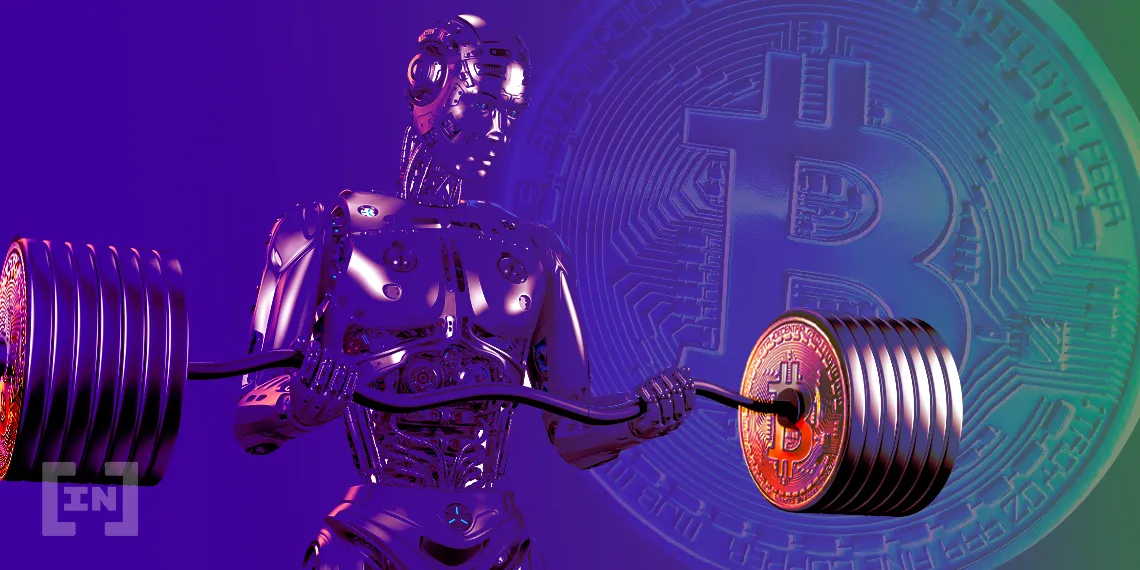
Crypto Options
Options are very similar to futures. Instead of there being an obligation to sell at a certain time, this contract type provides the option not to. Only one party is bound by the contract meaning that the seller or exchange has the obligation to deliver the crypto-asset should the buyer choose to exercise their right to buy.
Options are classified as either a put or a call. The call option grants the buyer the right, but not the obligation, to buy the asset at a later date at a given price, whereas a put gives the right to sell at a later date or specified price.

Perpetual Swaps
Swaps are a little more complicated. They are often referred to as ‘perpetual contracts’, which are essentially futures contracts with no expiry or settlement. Perpetual swaps are designed to be the same as spot trading prices, but there are a number of advantages over spot trading.
This type of contract has the ability to use leverage cheaply and easily, shorting the asset is also made easier, and liquidity on perpetual swaps is usually much higher. Leveraged contracts with volatile cryptocurrencies are extremely high risk, however, since small changes in market prices can quickly result in liquidation.
Perpetual swap markets are maintained in value by requiring traders to hold enough of the underlying asset to cover their orders. Assets such as Bitcoin are not physically bought with these contracts, but must be held in order to cover them in the event of a liquidation.
CFDs
There are other types of cryptocurrency derivatives such as contracts for differences (CFDs). These are cash-settled derivative contracts in which the parties seek to secure a profit or avoid a loss by agreeing to exchange the difference in price between the value of the crypto asset CFD contract at its beginning and its end.
Taker and Maker Fees
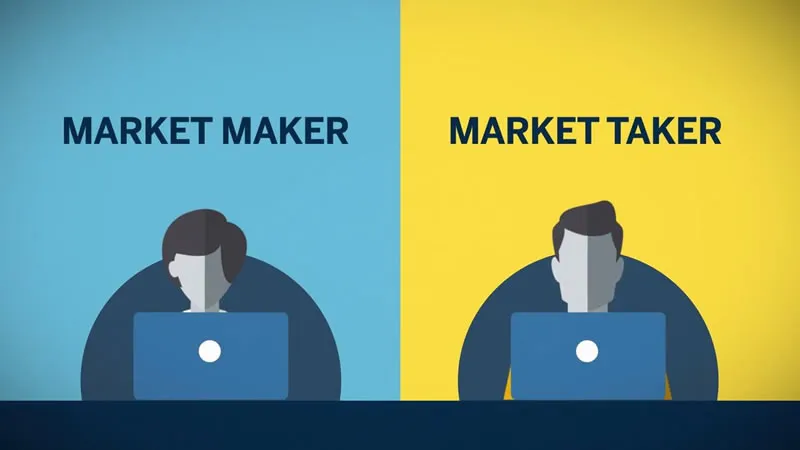 Image from Cmegroup.com
Image from Cmegroup.com
In order to trade derivatives contracts, most exchanges will charge taker and maker fees. When a trade takes place, it is usually between two parties. The maker (referring to ‘market maker’) is one who provides liquidity by placing limit orders on the order books prior to the trade. Makers are rewarded for this by being charged lower fees.
The taker ‘takes’ that liquidity by matching maker orders and placing market orders to immediately buy or sell orders sitting on the books. There is a slightly higher fee for being the taker.
The maker-taker model encourages liquidity by rewarding the makers a discounted fee resulting in a tighter market spread due to the increased incentive for makers to outbid each other. The higher fee that the taker pays is usually offset by the better prices this tighter spread provides.
In derivatives trading, the exchanges often charge maker and taker fees to encourage this liquidity and offset undesirable behaviour.
Margin Trading
Margin trading refers to the use of leveraged funds offered by the exchange. Leverage put simply, is a loan provided to an investor by an exchange that controls the trader’s account. BitMEX and Binance offer crypto derivatives with up to 125 times leverage which means the position is magnified by this amount. It also means that losses are magnified as leveraged trading is very risky and the ‘house’ usually wins!
Crypto derivatives can be difficult to understand, the deeper you go, the more there is to process. Learn everything you need to know at the BeInCrypto Telegram group.

Best Crypto Derivatives Exchanges
BitMEX Crypto Derivatives
BitMEX is one of the world’s most popular crypto exchanges for derivatives and leveraged trading. It offers a wide range of derivatives products for a number of different crypto assets, with different levels of leverage.
For traditional futures there are contracts for Bitcoin, Ethereum, Bitcoin Cash, Litecoin, XRP, EOS, Cardano, and Tron. BTC has the highest available leverage at 100x and the rest are 20x aside from LTC which has 33x. BitMEX charges between 0.05% and 0.25% as maker and taker fees.
There are also perpetual swap contracts available for Bitcoin, Ethereum, and XRP with BTC leveraged up to 100x and the rest 50x. The documentation adds that for perpetual contracts, funding is exchanged between longs and shorts over discrete funding intervals.
The exchange has also recently launched something called quanto futures for Ethereum. These contracts have a fixed Bitcoin multiplier regardless of the Ethereum price in dollars, which allows traders to long or short the ETH/USD exchange rate without ever touching either currency.
BitMEX has taken a little heat recently for allowing such highly leveraged trading, as it also comes with high risk and elevated chances of liquidation due to market volatility. There are enough risk warnings on the platform though, and there is a ‘maintenance margin’ for most contracts so that there is enough crypto in the account to cover any losses.
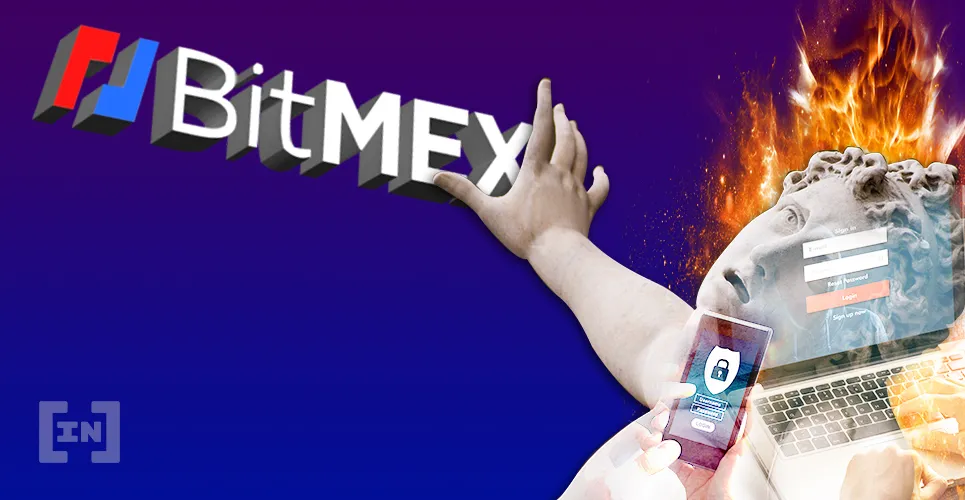
Binance Crypto Derivatives
Industry leader Binance has also been quick to launch a wide range of crypto derivatives. It has cited strong demand for crypto futures and other contracts and has been aggressively expanding its offerings. According to its 2019 industry overview, on average Binance futures processes over 300,000 BTC per day. The futures trading platform was launched in September 2019 and has expanded from just three initial contracts to a whole range of crypto derivatives.
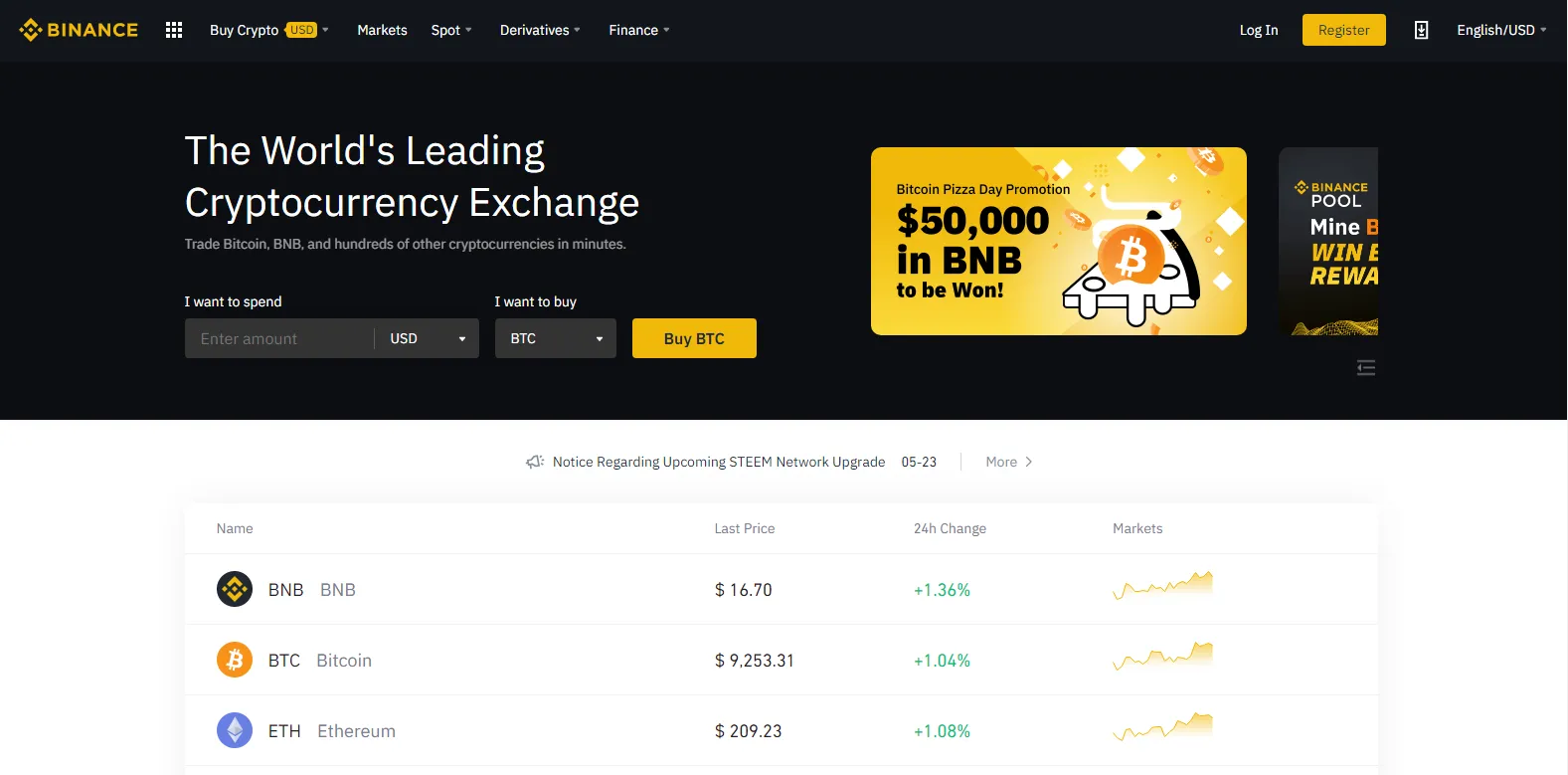
Today Binance offers perpetual contracts on 24 different crypto assets including all of the high cap coins and a few of the more obscure ones such as ONT, BAT, QTUM, and IOST. The exchange notes that perpetual contracts on Binance futures are similar to the trading pairs on the spot market, and they are priced and settled in the same manner.
The highest leverage is available on the BTC contract at 125x while the rest have leverage of 75x or 50x. There are minimum and maximum contract quantities for each asset and they are subject to margin rates and liquidation fees. Initial margin deposits are calculated using the leverage selected by the trader, and the account must have a suitable balance to cover liquidations.
Binance also offers a number of bonuses and referral rewards for introducing new derivatives clients.
Huobi Bitcoin Derivatives
Huobi is a new player in the crypto derivatives scene and, according to reports, rebranded its platform to Huobi Futures in May 2020. In an effort to keep up with the two industry leaders above, Huobi has expanded its own range of derivatives recently.
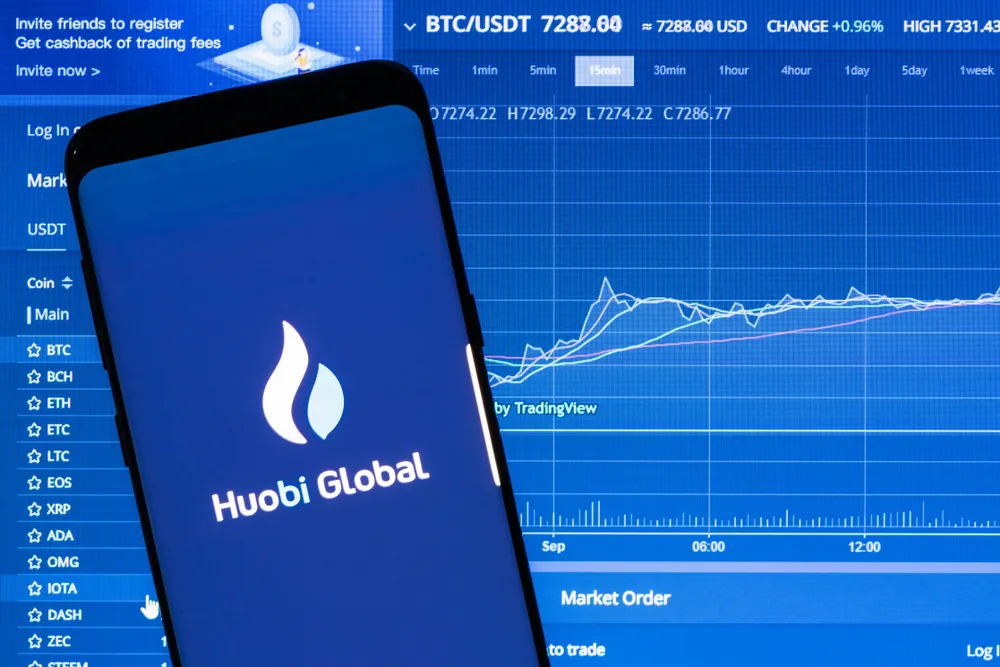
The Singapore headquartered crypto exchange offers futures contracts for Bitcoin, Ethereum, Bitcoin Cash, Bitcoin SV, EOS, Litecoin, XRP, Ethereum Classic, and Tron. Contracts come in variants of weekly, bi-weekly, quarterly, and perpetual swaps. BTC futures are leveraged at up to 20x while the swaps are 125x maximum. The rest have 20x for the futures and 75x leverage limits for the swaps.
There are swaps available for a few other altcoins including Chainlink, Cardano, Dash, and Zcash. In addition the rebranding to target futures, Huobi launched a crypto lending service called C2C in May 2020.
Eightcap
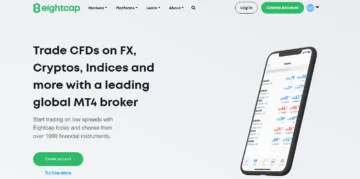
Eightcap is an award-winning regulated platform that offers crypto derivatives in addition to several other assets. The industry-recognized broker is regulated by the FCA, ASIC, CySEC, and SCB, and its MetaTrader 4 and MetaTrader 5 trading platforms have received good reviews on both Trustpilot and Google.
Eightcap lets you trade CFDs on several cryptos, FX, and indices. Over 250 cryptocurrencies are available, and over 1000 financial instruments in total. For those interested in only crypto, there are crypto-crosses and crypto indices, with leverage going up to 1:20. Executions are fast, and the spreads are very competitive, starting from 0 pip. Its Capitalise feature lets you automate your trading without needing to code, one of the more salient features.
You don’t need a crypto wallet either, as you can add funds through PayPal, Credit/Debit card, Skrill, Neteller, and more. Funding and swift withdrawal options are plentiful.
Eightcap offers 24-hour support, five days a week. User reviews on Google and Trustpilot showcase a positive from its users. There is even a free demo if you want to test the platform first.
OKX Bitcoin Derivatives
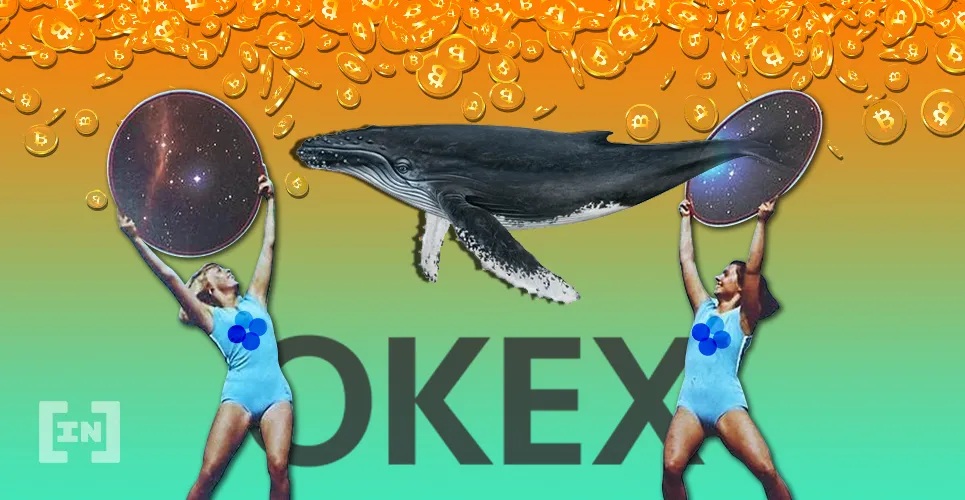
Hong Kong-based OKEx is another major exchange that has delved into crypto derivatives in order to keep up with its rivals. According to a recent CryptoCompare report, OKEx has surpassed Huobi for derivatives trading with a month-on-month volume increase of over $160 billion.
OKEx offers all three types of contract, futures, options, and swaps. It has crypto margined contracts and Tether margined futures on weekly, bi-weekly, quarterly, and bi-quarterly time periods. Futures contracts are for the following crypto assets; Bitcoin, Ethereum, XRP, Litecoin, EOS, Ethereum Classic, Bitcoin Cash, BSV, and Tron. USDT margined contracts are available for these nine assets also.
Options are only available for Bitcoin, but there are perpetual swaps for the assets listed above in addition to fourteen altcoins including Cardano, Stellar, Monero, Dash, Link, NEO, IOTA, and Zcash. OKEx has one of the largest selections of altcoins for futures contracts.
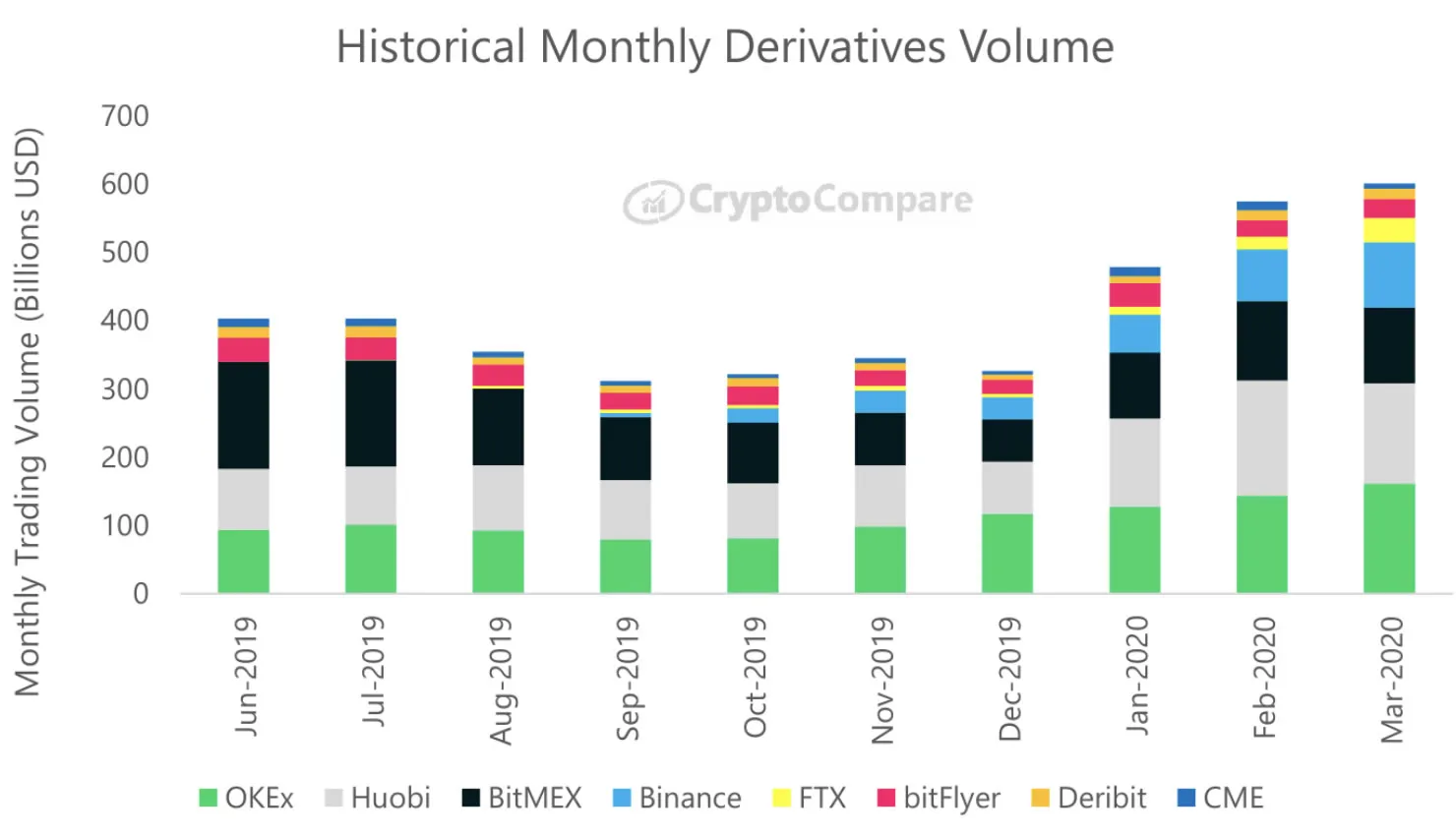 Chart from Cryptocompare.com
Chart from Cryptocompare.com
Other Bitcoin Futures Exchanges
There are a number of other exchanges that offer crypto derivatives and some are specialized in only those products.
Deribit
Deribit was launched in 2016 in Europe and was one of the first exchanges to offer Bitcoin futures and options. BTC USD denominated futures contracts on Deribit are cash settled rather than payouts being the physical delivery of Bitcoin.
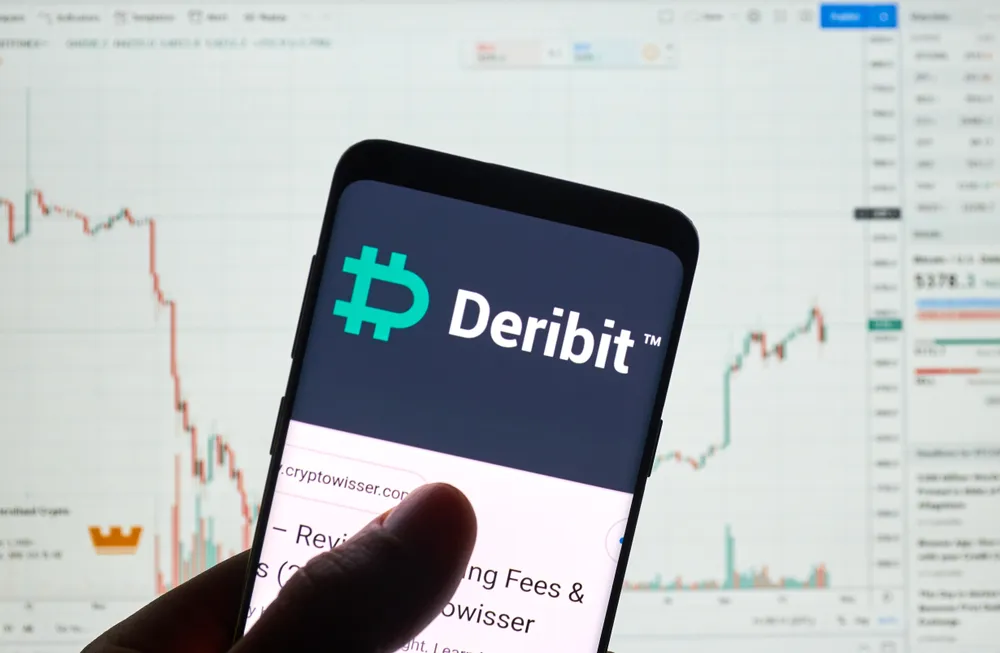
The exchange offers quarterly Bitcoin and Ethereum futures with minimum block trades of $200 and $100 respectively. There are also leveraged options contracts for the two assets, and cash-settled BTC and ETH swaps. Fees are in line with industry standards and withdrawals are processed on the fly through a hot wallet.
In terms of liquidity, Deribit is a small fish with BitMEX, for example, having around fifty times the volume.
FTX
FTX is another dedicated crypto derivatives exchange offering leveraged contracts on a number of digital assets. It is smaller than its competitors. They have a daily average volume of around $50 million.
With leveraged futures, options, and swaps available for a wide range of tokens it has a lot of choices but lacks liquidity and requires proof of identity and KYC compliance.

Other Derivates Exchanges
There are other smaller derivatives exchanges which include Bybit, PrimeXBT, bitForex, and bitZ. There are other traditional crypto exchanges offering futures contracts. These include Kraken, Bithumb, and Bitfinex, though their volumes are much lower than the bigger players listed above.
There are also the institutional behemoths such as the Chicago Board Options Exchange (CBOE), the Chicago Mercantile Exchange (CME), and the Intercontinental Exchange’s Bakkt. They tend to be suited to large institutions rather than individual traders and investors. CME, the current market leader, has grown so large that contract expiry dates have an effect on global Bitcoin prices.
Coingecko.com has a list of the most popular derivatives exchanges and shows volumes in comparison. BitMEX, Binance, Huobi, and OKEx are clearly the dominant players in the industry at the time of writing.
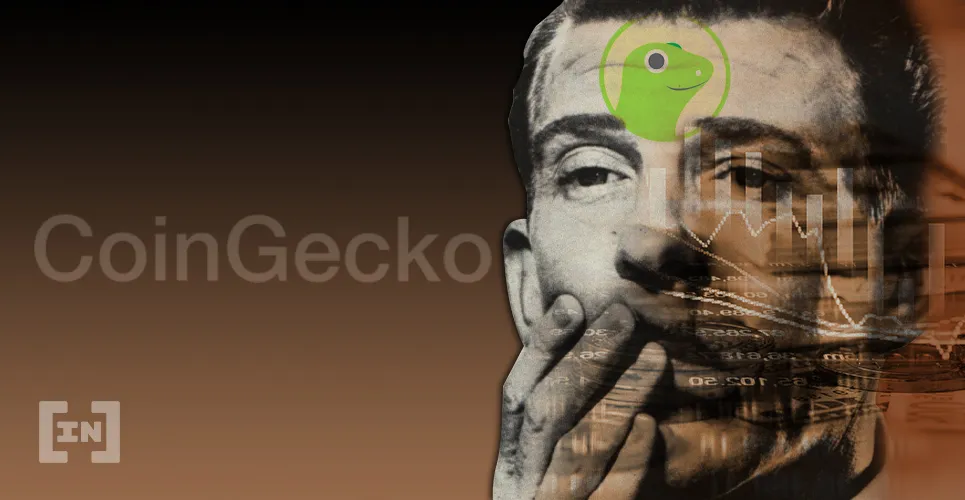
Crypto derivatives are expanding rapidly
The realm of crypto derivatives is rapidly expanding as the number of new products and contracts demonstrates. Futures contracts allow exposure to Bitcoin and cryptocurrencies without having to physically buy and store them. Additionally, they are well suited to traditional traders who are used to dealing with such investment vehicles for other assets.
As the industry grows, there will be more ways to trade and invest in digital assets through intuitive web platforms and smartphone apps. Derivatives contracts are rapidly catching up to spot trading and may even exceed it in terms of volumes in the years to come.




